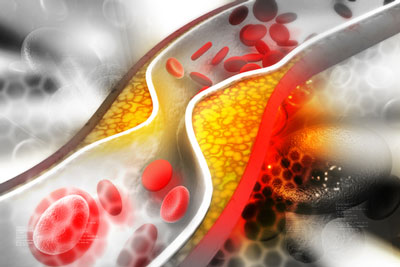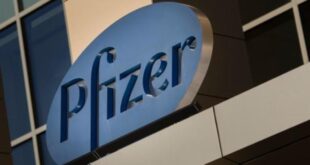Repatha (Evolocumab) side effects, cost, adult dosage, children dosage, mechanism and full prescribing information. Repatha is the new to reduce bad LDL cholesterol by Amgen Inc.
Repatha is used to treat patients who can’t control their cholesterol levels with cholesterol bringing down diet alone. Repatha was first approved by FDA on August 27th, 2015. It contains active ingredient evolocumab. Inactive ingredients present in Repatha include proline, glacial acetic acid, polysorbate 80, water for injection, and sodium hydroxide.
Repatha is the second medication certified in new class of drugs known as PCSK9 inhibitors after Cosentyx (Secukinumab). The drug is ratified for use in addition with diet and maximally-endured statin treatment in the category of adult patients.
Evolocumab is the generic name of Repatha. Evolocumab is intended to connect to a substance called PCSK9 that influences the liver’s capacity to take in cholesterol. By connecting to and cleaning up PCSK9 the drug expands the measure of cholesterol entering the liver thus brings down the level of cholesterol in the blood.
Repatha (Evolocumab) medicine brings down levels of bad cholesterol, a sort of fat, in the blood. Evolocumab is a monoclonal antibody focusing on proprotein convertase subtilisin/kexin sort 9 (PCSK9) for the treatment of patients with heterozygous familial hypercholesterolemia (HeFH), homozygous familial hypercholesterolemia (HoFH), or patients with atherosclerotic cardiovascular illness. For example, heart attacks or strokes, who requires extra bringing down of LDL-cholesterol.
Repatha (Evolocumab) Side effects, Cost, Dosage to Lower LDL
Please find below Repatha (Evolocumab) side effects, cost, dosage in adults and recommended dosage in children to Lower LDL:
Repatha (Evolocumab) Side Effects
The most widely recognized symptoms of Repatha incorporate nasopharyngitis, Upper respiratory tract disease, Influenza, Back pain, and responses, such as redness, aching or bruising where the injection is given. Allergic or Hypersensitive responses, such as rash and hives, have been accounted for with the utilization of Repatha.
Other side effects include cough, urinary tract infections, sinusitis, headache, myalgia, dizziness, musculoskeletal pain, hypertension, diarrhea and gastroenteritis.Patients ought to quit using Repatha and get medical help on the off chance that they encounter symptoms of a serious susceptible response, for example, swelling of the lips, tongue or throat.
Repatha Dosage for high Cholesterol (LDL) Treatment
Repatha is a clean, clear to opalescent, drab to light yellow solution accessible in following ways
- Repatha Injection 140 mg/mL solution in a single-use prefilled syringe
- Repatha Injection 140 mg/mL solution in a single-use prefilled auto injector
Repatha Dosage for Adults
The prescribed subcutaneous dosages of Repatha in patients with HeFH or patients with primary hyperlipidemia with set up clinical atherosclerotic CVD is either 140 mg every 2 weeks OR 420 mg once in a month. At the point when exchanging dose regimens, oversee the first measurements of the new regimen on the following planned date of the earlier regimen.
The suggested subcutaneous dosage of Repatha in patients with HoFH is 420 mg once a month. In patients with HoFH, measure LDL-C levels 4 to 8 weeks after start using Repatha, since reaction to treatment will rely on upon the level of LDL-receptor capacity.
In the event that if the regular intervals or once a month dosage is missed, instruct the patient to:
- Administer Repatha as quickly as time permits if there are over 7 days until the following scheduled doses.
- Omit the missed doses and direct the following dosage as indicated by the original schedule.
Taking after single subcutaneous injection of 140 mg or 420 mg of evolocumab, most extreme suppression of circulating unbound PCSK9 happened by 4 hours. Unbound PCSK9 concentrations returned toward bottom lines when evolocumab concentrations diminished underneath the farthest point of quantitation.
Taking after a single subcutaneous dosage of 140 mg or 420 mg evolocumab administered to healthy and sound adults, median peak serum conc. were achieved in 3 to 4 days, and assessed total bioavailability was 72%.After taking a single dose of 420 mg intravenous injection, the mean (SD) enduring state volume of conveyance was evaluated to be 3.3 (0.5) L.
Repatha Dosage for Children
The utilization of Repatha has not been contemplated in kids under 18 years old being dealt with for primary hypercholesterolemia and mixed dyslipidemia. The use of Repatha has not been concentrated on in youngsters under 12 years old being dealt with for homozygous familial hypercholesterolemia.
Repatha Cost for Treatment of High Cholesterol (LDL)
Capable and costly medications to treat elevated cholesterol are raising worries about the capacity of open and private back up plans to pay and whether the advantages the drugs bring will exceed their long haul costs.
The cholesterol drugs mostly will be taken for a lifetime. The rundown cost is $14,100 annually for Repatha at regular intervals of 2 weeks administration of drugs. At these rates, the lifetime expenses could be stunning. Actual expenses to patients, payers and healthcare systems are foreseen to appear as something else, in light of evaluating price negotiations, insurance or patient assistance frameworks.
The medications have been endorsed by the Food and Drug Administration for restricted gatherings of patients, similar to grown-ups who have an acquired condition that raises LDL cholesterol and don’t react to the greatest bearable measurements of statins.
 Health & Care Information
Health & Care Information 


